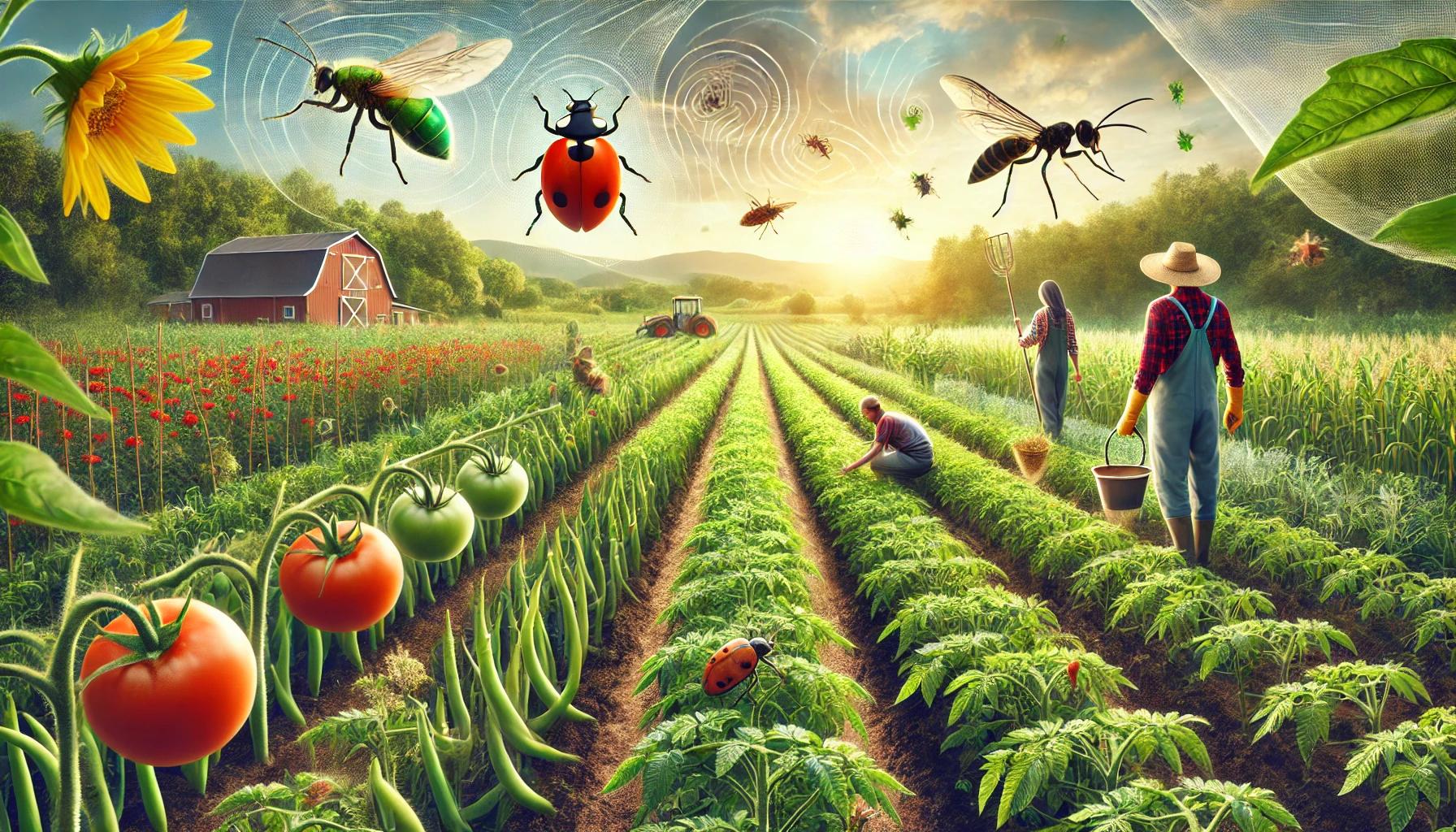Effective pest and disease management strategies that adhere to organic and environmentally friendly farming methods are more important than ever as the demand for these methods of production keeps rising. Eco-friendly fungicides and insecticides provide a means of crop protection while reducing their negative effects on the environment and maintaining ecosystem health. This article examines a number of environmentally friendly solutions, such as Hexaconazole 5% SC and Cartap Hydrochloride, their advantages, and how they support organic farming that is sustainable.
The Importance of Eco-Friendly Solutions in Organic Farming
The foundation of organic farming is the idea that the environment, crops, soil, and consumers should all be given top priority. Organic farming is a comprehensive strategy that minimizes synthetic materials and prioritizes ecological balance, in contrast to conventional agriculture, which frequently depends on artificial chemicals to control pests and diseases.
Benefits of Eco-Friendly Crop Protection Solutions
- Reduced Chemical Residues: Eco-friendly products leave fewer chemical residues on crops, ensuring healthier produce for consumers.
- Preservation of Beneficial Insects: Many eco-friendly solutions target harmful pests while sparing beneficial insects like pollinators and natural predators.
- Lower Environmental Impact: Eco-friendly products help maintain soil health and water quality by reducing the use of toxic chemicals, supporting overall ecosystem stability.
Cartap Hydrochloride: A Sustainable Insecticide
Cartap Hydrochloride is a powerful insecticide with a lower toxicity profile for non-target organisms, making it suitable for use in more sustainable agricultural systems. While it is not considered “organic” by strict definitions, its selective targeting of pests and lower environmental impact make it compatible with eco-friendly and integrated pest management (IPM) strategies.
How Cartap Hydrochloride Supports Sustainable Farming
- Targeted Pest Control: It effectively targets specific pests, such as stem borers, leaf folders, and caterpillars, while minimizing harm to beneficial insects.
- Long-Lasting Protection: Cartap Hydrochloride provides extended protection, reducing the need for frequent applications and thereby minimizing chemical input.
- Reduced Resistance Development: Its unique mode of action allows it to be used in rotation with other insecticides, slowing down the development of pest resistance and promoting long-term sustainability.
Hexaconazole 5% SC: A Systemic Fungicide for Eco-Friendly Crop Protection
If left untreated, fungal diseases pose a serious threat to crops and can result in large losses. A useful tool for organic and sustainable agricultural methods, hexaconazole 5% SC is a systemic fungicide that provides broad-spectrum treatment of fungal infections. By preventing the growth of harmful fungi, this fungicide promotes the healthy development of crops.
For farmers seeking effective fungal control while adhering to eco-friendly practices, consider cruzep 50 – cartap hydrochloride 50% SP. This product aligns with the goals of sustainable farming, offering reliable protection with minimal environmental impact.
Benefits of Hexaconazole 5% SC in Organic Farming
- Systemic Action: Hexaconazole is absorbed by the plant and moves throughout its tissues, providing comprehensive protection against a wide range of fungal pathogens.
- Safe for the Environment: Compared to many conventional fungicides, Hexaconazole has a lower toxicity profile, making it safer for non-target organisms and reducing environmental risk.
- Disease Prevention and Cure: It not only prevents fungal infections but also acts as a curative solution, helping to manage existing outbreaks effectively.
Integrating Eco-Friendly Solutions into Organic Farming Practices
With careful preparation and adherence to best practices, environmentally friendly pesticides and fungicides such as Hexaconazole 5% SC and Cartap Hydrochloride can be incorporated into organic and sustainable farming systems. Adopting a comprehensive strategy that incorporates these solutions with other sustainable practices is essential for success.
Best Practices for Integrating Eco-Friendly Solutions
- Rotation and Diversity: To prevent pest and disease resistance, rotate eco-friendly products with different modes of action and combine them with biological controls.
- Regular Monitoring: Monitoring pest and disease populations helps determine the best intervention timing and reduces the need for excessive applications.
- Cultural Practices: Incorporating crop rotation, companion planting, and other cultural practices enhances the effectiveness of eco-friendly solutions by reducing pest pressure and disease spread.
Real-World Success Stories
Farmers who have adopted eco-friendly crop protection strategies often report significant improvements in crop health, yield quality, and environmental sustainability. For example, a vegetable farmer who integrated Cartap Hydrochloride with biological controls observed a marked reduction in caterpillar infestations without harming beneficial insects. Similarly, Hexaconazole 5% SC has proven effective in controlling fungal diseases in high-value crops, leading to healthier harvests and reduced losses.
Challenges and Considerations
With careful preparation and adherence to best practices, environmentally friendly pesticides and fungicides such as Hexaconazole 5% SC and Cartap Hydrochloride can be incorporated into organic and sustainable farming systems. Adopting a comprehensive strategy that incorporates these solutions with other sustainable practices is essential for success.
Overcoming Challenges
- Education and Training: Providing farmers with knowledge and training on the effective use of eco-friendly solutions is crucial for maximizing their benefits.
- Research and Development: Continued innovation and research into new formulations and application methods can enhance the effectiveness of eco-friendly products.
- Policy Support: Government policies that promote and support eco-friendly farming practices can facilitate broader adoption and market access.
The Future of Eco-Friendly Crop Protection
Crop protection’s future depends on striking a balance between sustainable environmental practices and efficient pest and disease control. New developments in environmentally friendly insecticides and fungicides, like Hexaconazole 5% SC and Cartap Hydrochloride, show that it is feasible to achieve significant crop protection levels without endangering the environment.
Innovations on the Horizon
- Biological Synergies: Combining eco-friendly chemicals with biological agents, such as beneficial insects and microbial solutions, can enhance crop protection.
- Precision Agriculture: Advanced technologies like drones and sensors can optimize the application of eco-friendly products, reducing waste and improving efficacy.
- New Formulations: Research into new, safer formulations of existing products will continue to expand the options available to organic farmers.
Eco-friendly fungicides and insecticides are changing the way we protect crops by providing alternatives that support sustainable and organic farming practices.

